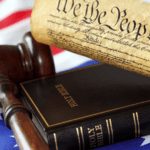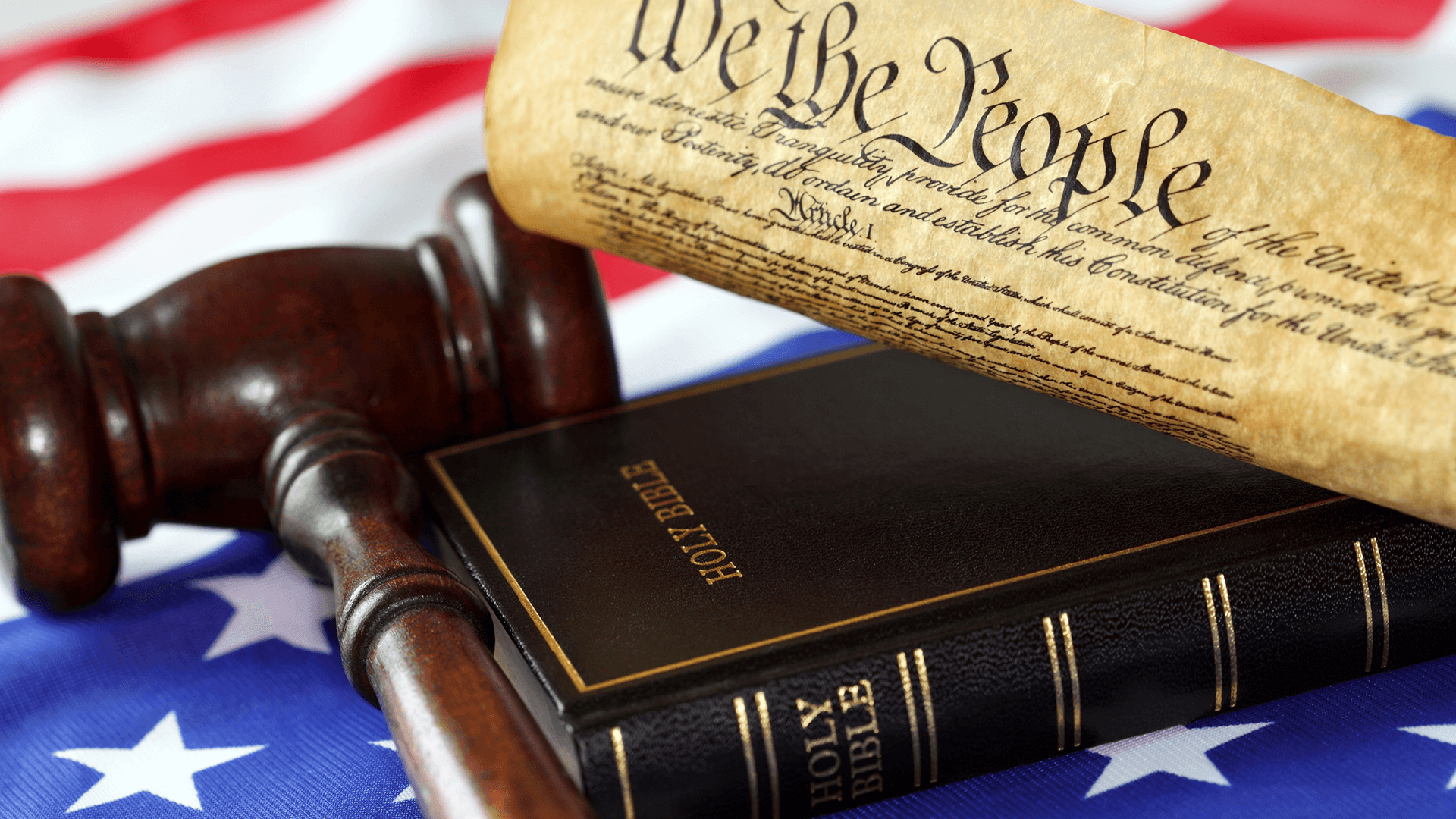This is Part 7 of the series Why Religious Liberty Matters
Walking by Faith:
Navigating Religious Freedom in Business and the Public Sphere
Religious liberty is more than just a constitutional right; it’s a calling to live out faith in all aspects of life, including the workplace and public square. From the biblical perspective, faith is not meant to be hidden but rather to serve as a light to the world. Jesus calls His followers to be “salt and light” (Matthew 5:13-16), impacting every environment they enter. This calling has been tested in recent years as believers in business and public service navigate legal challenges around practicing faith in an increasingly diverse and secular society.
Notable cases such as Burwell v. Hobby Lobby and Masterpiece Cakeshop v. Colorado Civil Rights Commission show the courts grappling with questions of religious freedom, anti-discrimination, and the boundaries of faith in business. For Christians, these cases are more than legal precedents; they are reminders of the biblical mandate to “do everything for the glory of God” (1 Corinthians 10:31). In this post, we will explore how religious rights apply within organizations, how recent rulings impact faith-based businesses, and how believers are called to uphold their convictions while engaging compassionately in society.
Notable Cases:
Hobby Lobby and Masterpiece Cakeshop
In Burwell v. Hobby Lobby (2014), the Supreme Court addressed a question that struck at the core of religious freedom in business. The Green family, owners of Hobby Lobby, a national craft store chain, contended that being required to provide contraception coverage as part of the Affordable Care Act would force them to violate their faith-based values. They argued that their company was an extension of their Christian beliefs, and as such, they could not support practices they deemed contrary to biblical teaching on the sanctity of life (Psalm 139:13-16, Legacy Standard Bible, 2021).
The Supreme Court ruled in favor of Hobby Lobby, affirming that closely held for-profit corporations could claim religious exemptions under RFRA, as long as there was a less restrictive way for the government to achieve its objectives. This decision underscored a biblical principle seen throughout scripture: believers are called to live and work in ways that honor God. As Proverbs 16:3 says, “Commit your works to the Lord, and your plans will be established” (Legacy Standard Bible, 2021). For the Greens, faith in business was not simply a personal matter but a public witness, embodying the biblical calling to be faithful stewards in all endeavors.
Similarly, in Masterpiece Cakeshop v. Colorado Civil Rights Commission (2018), the Supreme Court considered whether Jack Phillips, a Christian baker, had the right to decline creating a wedding cake for a same-sex couple. Phillips saw his work as an act of worship, where each cake was a reflection of his faith and artistic expression. Creating a cake for a same-sex wedding, he argued, would require him to affirm a message contrary to his beliefs on biblical marriage (Genesis 2:24). The Court ruled in favor of Phillips, noting that the Colorado Civil Rights Commission had shown hostility toward his religious beliefs during the initial proceedings, thus failing to provide him fair treatment.
These cases reflect a deep biblical conviction: that faith is meant to permeate every part of life, including work. The concept of work as worship is central to the Christian worldview, grounded in passages like Colossians 3:23, where believers are encouraged to work “heartily, as for the Lord rather than for men.” The rulings affirm that religious liberty extends into the marketplace, recognizing that faith-based decisions in business can be a testimony to the world.
Corporate and Institutional Rights
The rulings in Hobby Lobby and Masterpiece Cakeshop not only defended individual rights but also raised questions about how religious liberty applies to organizations and corporations. Many businesses and institutions, from hospitals to schools, are founded on Christian principles and view their mission as an extension of their faith. This perspective is biblically grounded in the idea that believers form a body that functions together for a common purpose, each contributing according to their calling (1 Corinthians 12:12-27). As organizations, they embody a collective witness to Christ, showing how faith transforms every aspect of life.
In Our Lady of Guadalupe School v. Morrissey-Berru (2020), the Supreme Court extended this principle to religious schools, ruling that they could make employment decisions based on religious criteria, even for positions not traditionally considered “ministerial.” This “ministerial exception” protects the right of religious institutions to select individuals who share their faith values, a principle reflecting the biblical understanding of being “yoked” with those who are aligned in mission and belief (2 Corinthians 6:14).
These cases reinforce the importance of religious freedom for institutions with a faith-based mission. For believers, this means that Christian organizations can maintain their identity and purpose without compromising on biblical convictions. This corporate freedom aligns with the call in 1 Peter 2:16 to “act as free people… as bondservants of God,” using freedom to serve God faithfully and as a witness to the world.
Debates Over Anti-Discrimination and Religious Exemptions
One of the most complex challenges in modern religious liberty is the tension between anti-discrimination protections and religious exemptions, especially regarding LGBTQ+ rights. This debate centers on how to honor both the dignity of individuals seeking equal treatment and the rights of business owners and institutions to operate according to their faith convictions. Scripture calls Christians to “love your neighbor as yourself” (Mark 12:31), yet it also emphasizes the importance of obedience to God’s commands above all (Acts 5:29).
For example, in Masterpiece Cakeshop, Phillips’ refusal to design a cake for a same-sex wedding was grounded in his belief that marriage is a covenant between a man and a woman, as established in Genesis 2:24. For many believers, honoring God’s design for marriage is an act of faithfulness, not discrimination. However, opponents argue that refusing service based on sexual orientation constitutes a form of exclusion incompatible with public service.
These cases reveal the ongoing challenge of balancing religious freedom with civil rights protections. From a biblical perspective, Christians are called to show both conviction and compassion. Jesus demonstrated this balance when He met the Samaritan woman at the well, engaging her with both grace and truth (John 4:1-26). In the same way, believers today are called to uphold biblical convictions while engaging respectfully with those who hold different views, exemplifying a love that seeks both truth and mercy.
Reflective Questions
As we consider the role of religious liberty in the workplace and public sphere, reflect on these questions:
- How do cases like Hobby Lobby and Masterpiece Cakeshop illustrate the biblical principle of faithfulness in all areas of life?
- What role should corporate and institutional rights play in allowing faith-based organizations to operate according to their beliefs?
- How can Christians uphold their faith in business settings while engaging with respect and compassion toward those with differing views, particularly in the context of anti-discrimination laws?
These questions encourage us to reflect on how faith is lived out in daily life, especially in environments where beliefs may come into conflict with broader societal expectations.
Conclusion
The right to live out one’s faith in the workplace and public sphere reflects a commitment to a holistic approach to Christianity, where faith informs every action, decision, and relationship. Cases like Hobby Lobby, Masterpiece Cakeshop, and Our Lady of Guadalupe School demonstrate the importance of religious freedom in business and institutional settings, affirming that faith can—and should—extend beyond private belief to shape every aspect of public life.
For Christians, the challenge is to remain faithful to biblical convictions while respecting the rights and dignity of others, reflecting Jesus’ call to be “wise as serpents and innocent as doves” (Matthew 10:16). In our final post, we’ll explore contemporary issues in religious liberty and consider how believers can navigate an ever-changing cultural landscape. Religious liberty, in the workplace and beyond, is a reminder that faith is not just a belief system but a way of life—one that seeks to honor God and witness to His truth in every sphere.
Chris Reighley is a Colson Fellow and a leader grounded in faith, family, and mission. With a career spanning servant leadership, digital marketing, and servant leadership, he is driven by a passion for empowering others. He is pursuing an Executive Master’s at The Bush School of Government and Public Service at Texas A&M and a Master of Arts in Biblical Studies from Redemption Seminary. Through Shoe Leather Gospel, Chris is dedicated to combating biblical illiteracy and mentoring future leaders.

References
- Legacy Standard Bible. (2021). 2nd ed.
- U.S. Supreme Court. (2014). Burwell v. Hobby Lobby Stores, Inc., 573 U.S. 682.
- U.S. Supreme Court. (2018). Masterpiece Cakeshop v. Colorado Civil Rights Commission, 584 U.S.
- U.S. Supreme Court. (2020). Our Lady of Guadalupe School v. Morrissey-Berru, 591 U.S.



